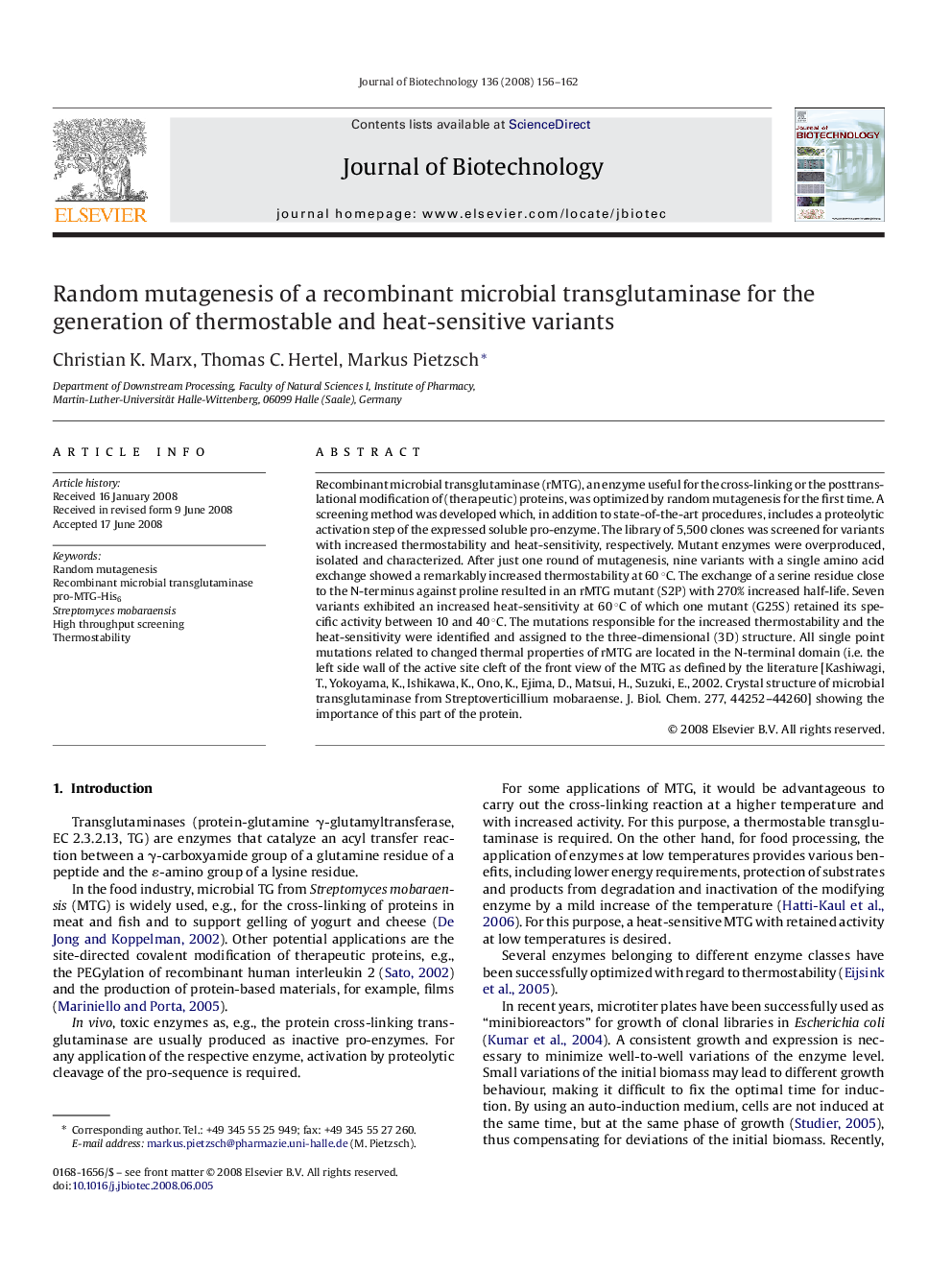| Article ID | Journal | Published Year | Pages | File Type |
|---|---|---|---|---|
| 24536 | Journal of Biotechnology | 2008 | 7 Pages |
Recombinant microbial transglutaminase (rMTG), an enzyme useful for the cross-linking or the posttranslational modification of (therapeutic) proteins, was optimized by random mutagenesis for the first time. A screening method was developed which, in addition to state-of-the-art procedures, includes a proteolytic activation step of the expressed soluble pro-enzyme. The library of 5,500 clones was screened for variants with increased thermostability and heat-sensitivity, respectively. Mutant enzymes were overproduced, isolated and characterized. After just one round of mutagenesis, nine variants with a single amino acid exchange showed a remarkably increased thermostability at 60 °C. The exchange of a serine residue close to the N-terminus against proline resulted in an rMTG mutant (S2P) with 270% increased half-life. Seven variants exhibited an increased heat-sensitivity at 60 °C of which one mutant (G25S) retained its specific activity between 10 and 40 °C. The mutations responsible for the increased thermostability and the heat-sensitivity were identified and assigned to the three-dimensional (3D) structure. All single point mutations related to changed thermal properties of rMTG are located in the N-terminal domain (i.e. the left side wall of the active site cleft of the front view of the MTG as defined by the literature [Kashiwagi, T., Yokoyama, K., Ishikawa, K., Ono, K., Ejima, D., Matsui, H., Suzuki, E., 2002. Crystal structure of microbial transglutaminase from Streptoverticillium mobaraense. J. Biol. Chem. 277, 44252–44260] showing the importance of this part of the protein.
